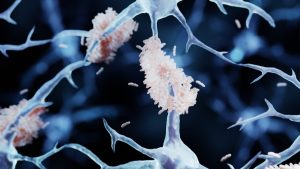Articles / Concussion recovery not clear cut for children

0 hours
These are activities that expand general practice knowledge, skills and attitudes, related to your scope of practice.
0 hours
These are activities that require reflection on feedback about your work.
0 hours
These are activities that use your work data to ensure quality results.
These are activities that expand general practice knowledge, skills and attitudes, related to your scope of practice.
These are activities that require reflection on feedback about your work.
These are activities that use your work data to ensure quality results.
Most children will recover fully from concussion, but one in ten has persistent symptoms.
University of Queensland researchers have just completed a study between these symptoms and long-term disability risk, and the results are striking.
Poor sleep post-concussion in particular was linked to reduced brain function and decreased grey matter, with fatigue and attention difficulties also being potential indicators.
Using information on reductions in brain function, researchers were able to predict with 86 percent accuracy how children would recover two months from sustaining a concussion.
“Generally, children with persistent concussion symptoms will have alterations to their visual, motor and cognitive brain regions but we don’t have a clear understanding of how this develops and how it relates to future recovery,” said study author and UQ Child Health Research Centre Research Fellow, Dr Kartik Iyer.

Menopausal Hormone Therapy - What Dose of Estrogen is Best?

Cardiovascular Benefits of GLP1s – New Evidence

Oral Contraceptive Pill in Teens

RSV and the Heart


Yes
No
Listen to expert interviews.
Click to open in a new tab
Browse the latest articles from Healthed.
Once you confirm you’ve read this article you can complete a Patient Case Review to earn 0.5 hours CPD in the Reviewing Performance (RP) category.
Select ‘Confirm & learn‘ when you have read this article in its entirety and you will be taken to begin your Patient Case Review.
Menopause and MHT
Multiple sclerosis vs antibody disease
Using SGLT2 to reduce cardiovascular death in T2D
Peripheral arterial disease
